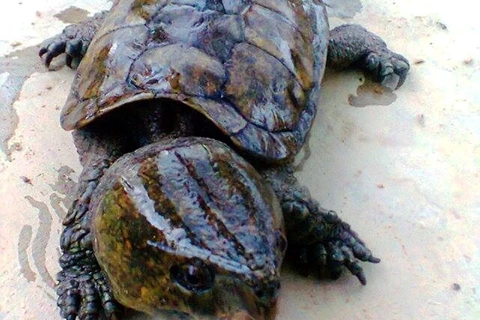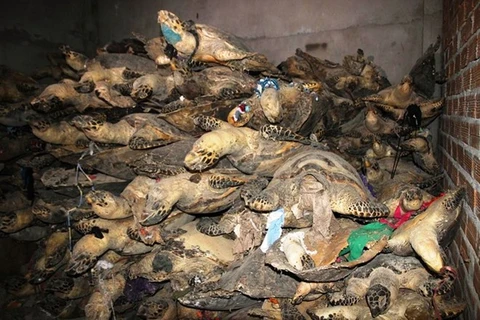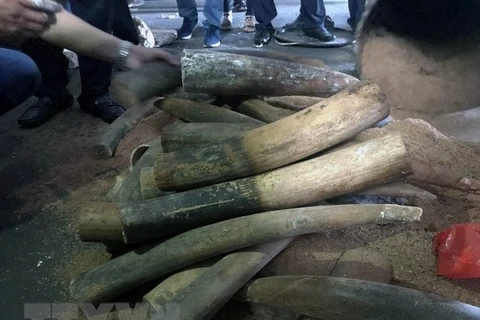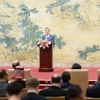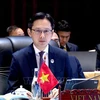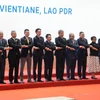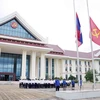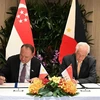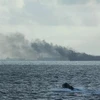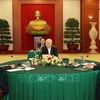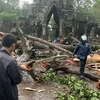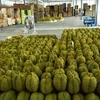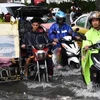 Myanmar forest rangers stand behind elephant tusks ahead of a ceremony to destroy confiscated wildlife parts in Naypyidaw on October 4, 2018.(Source: AP)
Myanmar forest rangers stand behind elephant tusks ahead of a ceremony to destroy confiscated wildlife parts in Naypyidaw on October 4, 2018.(Source: AP) Hanoi (VNA) - Myanmar authorities on October 4 burned an estimated 1.3 million USD worth of confiscated ivory and other parts of endangered animals which were seized during a campaign to combat wildlife trading earlier.
The 1.4 million tonnes of items destroyed included 227 pieces of ivory, 1,544 different horns, 180 bones of tigers and a large number of parts of other animals.
Minister of Natural Resources and Environmental Conservation Ohn Win stressed the significance of protecting forest, maritime resources as well as the wildlife to the future of younger generations.
Located in the Golden Triangle and bordering Thailand and Laos, Myanmar is considered the centre for wildlife trading. The animal parts are mostly transported to China.
A recent report by the Save the Elephants showed that ivory trafficking through the border between Myanmar and China has continued to rise despite China’s ban of the activities. Over the past three years, the amount of ivory transported through the borders surged 60 percent.-VNA
VNA
